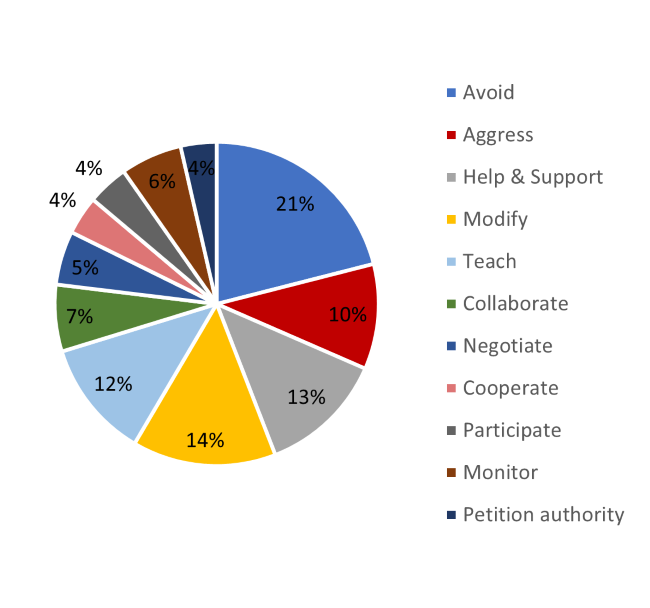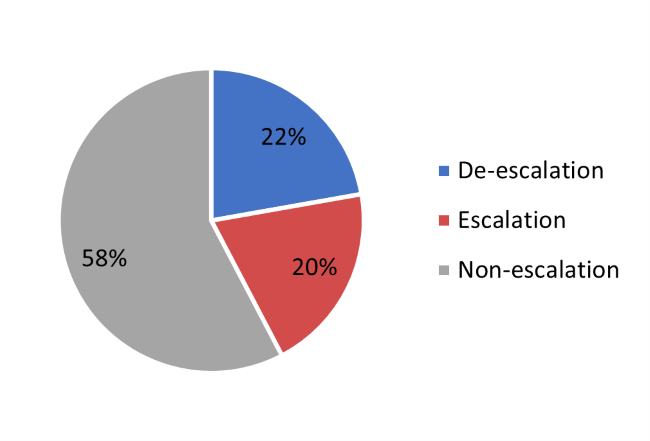Civilian Agency in Post-Accord Societies: Lebanon
The civil war ended formally in 1990 with the Ta’ef Accord (signed in 1989) establishing power sharing arrangements between the major religious sects. In the years since, Lebanon has experienced periods of stability mixed with bouts of within-country intergroup and regional violence. Grassroots-level organisations have contributed to development and reconciliation, yet the perceived corruption of those in power, the de facto power of some armed groups and the economic collapse in recent years have reinforced much of the sectarian divisions and have certainly contributed to a continuation of intergroup tensions. Although there are regional differences within Lebanon in the historical narratives and experiences of conflict, the findings below provide an overview of some of the ways that people must get on with their lives.
Strategies Figure 1: Strategies reported in interviews in Lebanon
Figure 1: Strategies reported in interviews in Lebanon
Impact
Figure 2. Intended impact of strategies reported in interviews in
Lebanon
Key Findings
- Avoidance is a prevalent strategy employed by civilians in Lebanon (Figure 1).
- They mostly avoid places (57%) perceived to be associated with more hardline factions of the outgroup or with illicit crime. These areas may be residential and are noted by sectarian, political and social class intersection.
- Civilians demonstrate support for each other in various ways, mainly within own communities. This is reflective not only of strong community bonds but also to meet needs in the perceived absence of a working state.
- Civilians in Lebanon demonstrate a high overall indicator of non-escalatory behaviour. This is indicative of efforts to maintain the status quo and avoid conflict or difficult situations (Figure 2).
- Modification of behaviour and speech is used as an example of non-escalation, suggesting that civilians feel the need to adjust and show vigilance in their interactions and daily decisions.
- Politically, civilians report frustration and a sense of helplessness over corrupt leaders, a perceived nonexistent state, severe economic downturn, and grave concern over volatility of security from internal and regional strife. This is also reflected in increased tensions with Syrian refugees.
